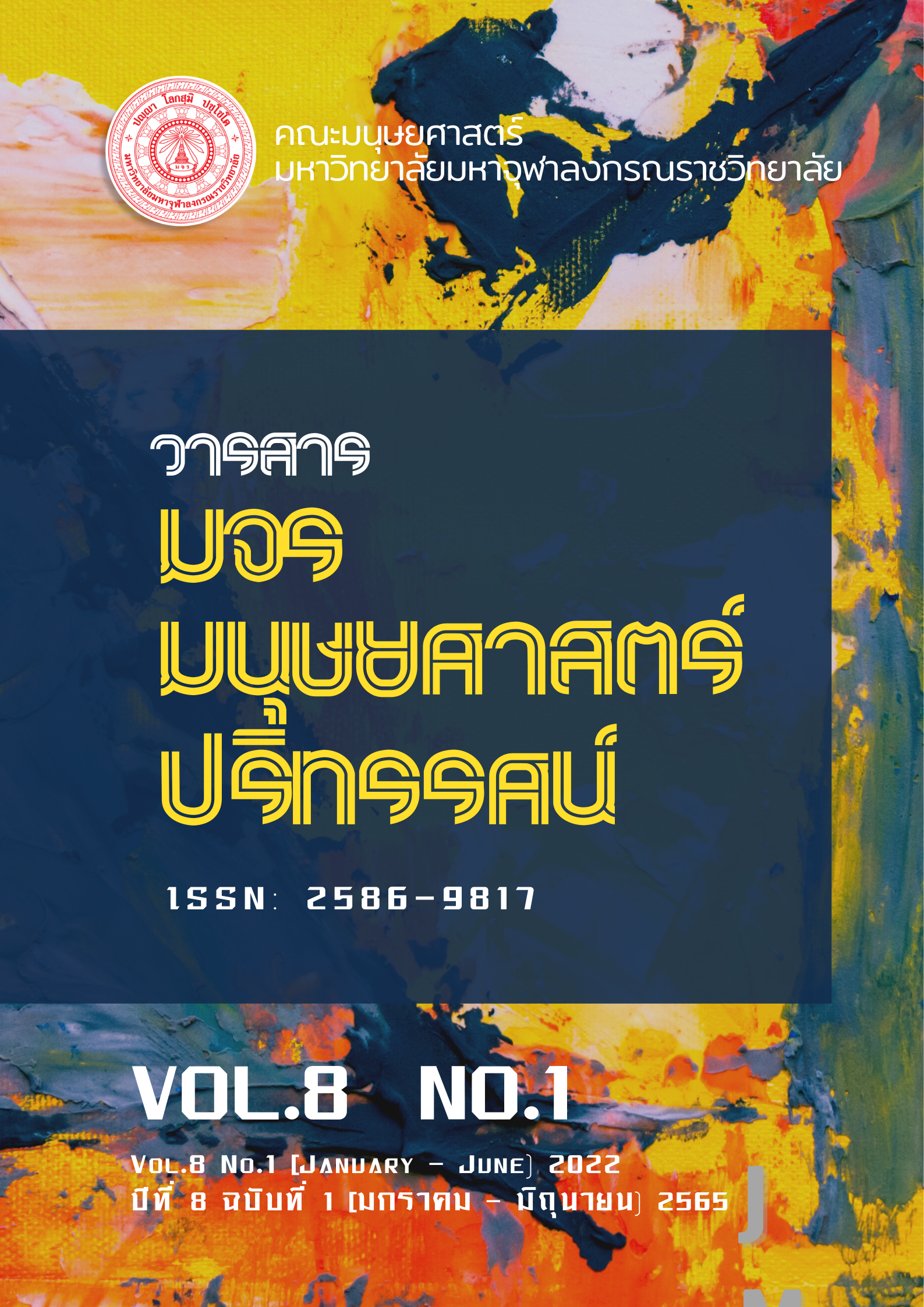บทความวิจัย แนวทางการส่งเสริมทักษะอาชีพตามหลักปรัชญาของเศรษฐกิจพอเพียงในโรงเรียนกลุ่มเครือข่ายพัฒนาคุณภาพการศึกษาสิชล 1 สังกัดสำนักงานเขตพื้นที่การศึกษาประถมศึกษานครศรีธรรมราช เขต 4
คำสำคัญ:
การส่งเสริมทักษะอาชีพ, หลักปรัชญาของเศรษฐกิจพอเพียง, กลุ่มเครือข่ายพัฒนาคุณภาพการศึกษาสิชล 1บทคัดย่อ
บทความวิจัยนี้มีวัตถุประสงค์เพื่อ 1) ศึกษาสภาพการดำเนินงานทักษะอาชีพตามหลักปรัชญาของเศรษฐกิจพอเพียง 2) ศึกษาแนวทางการส่งเสริมทักษะอาชีพตามหลักปรัชญาของเศรษฐกิจพอเพียง 3) เพื่อนำเสนอแนวทางการส่งเสริมทักษะอาชีพตามหลักปรัชญาของเศรษฐกิจพอเพียง ใช้ระเบียบการวิจัยเชิงคุณภาพ เก็บข้อมูลโดยการสัมภาษณ์เชิงลึกจากผู้บริหารสถานศึกษาจำนวน 11 คน ครูผู้รับผิดชอบโครงการสถานศึกษาพอเพียงจำนวน 8 คน ศึกษานิเทศก์จำนวน 2 คน คณะกรรมการสถานศึกษาขั้นพื้นฐาน จำนวน 3 ตัวแทนผู้ปกครอง จำนวน 1 คน ได้มาจากการเลือกแบบเจาะจง เครื่องมือที่ใช้ในการวิจัยเป็นแบบสัมภาษณ์เชิงลึกและแบบสัมภาษณ์ประเด็นการสนทนากลุ่ม (Focus Group) ผลการวิจัยพบว่า
- 1. สภาพการดำเนินงานทักษะอาชีพตามหลักปรัชญาของเศรษฐกิจพอเพียง มีกระบวนการบริหารตามหลักธรรมาภิบาลในการส่งเสริมทักษะอาชีพตามหลักปรัชญาของเศรษฐกิจพอเพียง เปิดโอกาสให้ผู้ที่มีส่วนเกี่ยวข้องในการจัดการศึกษาเข้ามามีส่วนร่วม เน้นการส่งเสริมทักษะอาชีพทั้งในชั้นเรียนและนอกชั้นเรียนโดยครูผู้รับผิดชอบดำเนินการจัดการเรียนการสอนยึดผู้เรียนเป็นสำคัญ มีการพัฒนาหลักสูตร การพัฒนาครูและบุคลากรทางการศึกษาที่จำเป็นต่อการส่งเสริมอาชีพและการมีงานทำ มีการพัฒนาสถานที่และมีการวัดและประเมินผลเพื่อพัฒนาและปรับปรุงการดำเนินงาน
- 2. แนวทางการส่งเสริมทักษะอาชีพตามหลักปรัชญาของเศรษฐกิจพอเพียง ประกอบด้วย 1) กระบวนการบริหาร 2) เครือข่ายความร่วมมือ 3) การจัดการเรียนรู้ ผู้ 4) การพัฒนาหลักสูตร 5) การพัฒนาครู 6) การจัดสภาพแวดล้อม 7) การวัดและประเมินผล
- 3. ผู้ทรงคุณวุฒิได้ตรวจสอบแนวทางการส่งเสริมทักษะอาชีพตามหลักปรัชญาของเศรษฐกิจพอเพียงในโรงเรียนกลุ่มเครือข่ายพัฒนาคุณภาพการศึกษาสิชล 1 สังกัดสำนักงานเขตพื้นที่การศึกษาประถมศึกษานครศรีธรรมราช เขต 4 มีความเหมาะสม มีความเป็นไปได้ มีความเป็นประโยชน์ สามารถนำไปใช้ได้
เอกสารอ้างอิง
กระทรวงศึกษาธิการ. (2554). ยุทธศาสตร์การขับเคลื่อนปรัชญาเศรษฐกิจพอเพียงสู่สถานศึกษา (2553 - 2557). กรุงเทพมหานคร: ศูนย์ประสานงานกลางการดำเนินการโครงการอันเนื่องมาจากพระราชดำริสำนักพัฒนากิจการนักเรียนนักศึกษาและกิจการพิเศษ.
ปิย สุดิสุสด. (2562). ยุทธศาสตร์การบริหารหลักสูตรสถานศึกษาเพื่อส่งเสริมอาชีพและการมีงานทำในโรงเรียนขยายโอกาสทางการศึกษาตามแนวตะเข็บชายแดนจังหวัดเชียงราย. วารสารมหาจุฬานาครทรรศน์, 6(8), 59 – 69.
ภาณุพงษ์ ต๊ะอ้าย. (2557). การเตรียมความพร้อมเพื่อรับการประเมินสถานศึกษาแบบอย่างการจัดกิจกรรมการเรียนรู้และการบริหารจัดการตามหลักปรัชญาของเศรษฐกิจพอเพียง (สถานศึกษาพอเพียง) ระดับการศึกษาขั้นพื้นฐานสังกัดสำนักงานเขตพื้นที่การศึกษาประถมศึกษาพะเยา เขต 2 (วิทยานิพนธ์การศึกษามหาบัณฑิต). มหาวิทยาลัยพะเยา : พะเยา.
สายเพ็ญ บุญทองแก้ว. (2563) การพัฒนารูปแบบการบริหารสถานศึกษาเพื่อพัฒนาทักษะอาชีพสำหรับนักเรียนในโรงเรียนสังกัดสำนักงานเขตพื้นที่การศึกษาประถมศึกษาสุราษฎร์ธานี เขต 2 (วิทยานิพนธ์ครุศาสตรมหาบัณฑิต). มหาวิทยาลัยราชภัฏสุราษฎร์ธานี : สุราษฎร์ธานี.
สำนักงานเขตพื้นที่การประถมศึกษานครศรีธรรมราช เขต 4. (2564). แผนปฏิบัติการประจำปี พ.ศ. 2564. นครศรีธรรมราช: งานแผนและนโยบาย.
สำนักงานคณะกรรมการการศึกษาขั้นพื้นฐาน. (2557). เรียนรู้...บูรณาการ. กรุงเทพฯ : คุรุสภาลาดพร้าว.
สำนักงานวิชาการและมาตรฐานการศึกษา. (2554). การพัฒนาทักษะชีวิตในระบบการศึกษาขั้นพื้นฐาน. กรุงเทพฯ: กระทรวงศึกษาธิการ.
สำนักงานศึกษาธิการจังหวัดนครศรีธรรมราช. (2562). แผนพัฒนาการศึกษาประจำปีงบประมาณ พ.ศ.2562– 2565. นครศรีธรรมราช: สำนักงานศึกษาธิการจังหวัดนครศรีธรรมราช.
สุชาดา ปลื้มฤทัย. (2561). การศึกษาการนิเทศภายในสถานศึกษาพอเพียงของผู้บริหารโรงเรียนในสังกัดสำนักงานเขตพื้นที่การศึกษามัธยมศึกษา เขต 3 (วิทยานิพนธ์ปริญญาครุศาสตรมหาบัณฑิต). มหาวิทยาลัยราชภัฏพระนครศรีอยุธยา : พระนครศรีอยุธยา.
อดิศร บุญโนนแต้. (2559). การพัฒนาแนวทางการดำเนินงานสู่สถานศึกษาพอเพียงต้นแบบสำหรับโรงเรียนสังกัดสำนักงานเขตพื้นที่การศึกษามัธยมศึกษา เขต 3 (วิทยานิพนธ์การศึกษามหาบัณฑิต). มหาวิทยาลัยมหาสารคาม : มหาสารคาม.
อนุวัติ คูณแก้ว. (2562). การวิจัยและพัฒนารูปแบบการวัดผลและประเมินผลการเรียนรู้ในศตวรรษที่ 21 สู่ การศึกษา 4.0 (รายงานการวิจัย). เพชรบูรณ์: มหาวิทยาลัยราชภัฏเพชรบูรณ์.
Jansen. (2013). Lift Skills that Enable Resilience: A Profile of Adolescents from a Coloured Community in Kimberley. University of the Free State.
Tarbutton and Tanya. (2018). Leveraging 21st Century Learning & Technology to Create Caring DiverseClassroomCultures. MulticulturalEducation, 25(2), 4–6.

ดาวน์โหลด
เผยแพร่แล้ว
รูปแบบการอ้างอิง
ฉบับ
ประเภทบทความ
หมวดหมู่
สัญญาอนุญาต
ลิขสิทธิ์ (c) 2022 วารสาร มจร มนุษยศาสตร์ปริทรรศน์

อนุญาตภายใต้เงื่อนไข Creative Commons Attribution-NonCommercial-NoDerivatives 4.0 International License.





